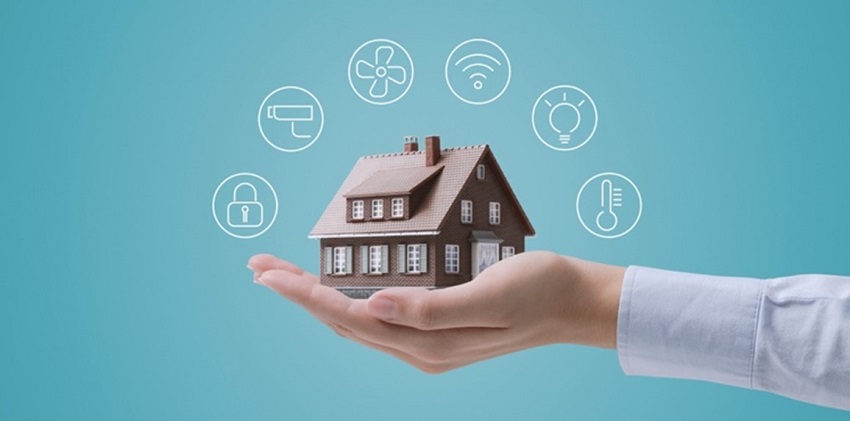Training at QUNDIS: Protecting digital solutions for the smart home
The Evolution of Smart Homes: Redefining Modern Living
In the not-so-distant past, the concept of a “smart home” might have seemed like something out of a science fiction novel. Today, it’s a reality that’s rapidly transforming the way we live, interact with our surroundings, and manage our daily routines. The integration of technology into our homes has given rise to the phenomenon of the smart home – a convergence of convenience, efficiency, and connectivity that has redefined modern living.
 Feedback by Dr. Martin Kraus, managing director / COO at QUNDIS GmbH after the training: “Prof. Wurzer’s presentation was extremely informative and helpful for us. Since we have not had any concrete contact with the patentability of digital objects and digital solutions, but on the other hand a large focus of our development and business activities is based on software solutions, the illustrative case studies and the structured approach by means of the PDCA cycle were very well suited to make us aware of the urgency as well as the economic significance and approach. The protection of our know-how (digital business models, customer journeys) via digital patents will also be an important economic success factor for our company.”
Feedback by Dr. Martin Kraus, managing director / COO at QUNDIS GmbH after the training: “Prof. Wurzer’s presentation was extremely informative and helpful for us. Since we have not had any concrete contact with the patentability of digital objects and digital solutions, but on the other hand a large focus of our development and business activities is based on software solutions, the illustrative case studies and the structured approach by means of the PDCA cycle were very well suited to make us aware of the urgency as well as the economic significance and approach. The protection of our know-how (digital business models, customer journeys) via digital patents will also be an important economic success factor for our company.”
A smart home encompasses a range of devices, systems, and appliances that are interconnected through the Internet of Things (IoT). These devices can be controlled, monitored, and automated remotely, often through smartphones or voice-activated assistants like Amazon’s Alexa or Google Assistant. From adjusting the thermostat to managing security cameras, the possibilities of a smart home are vast, offering homeowners unprecedented control and customization of their living spaces.
One of the key advantages of smart homes is the enhanced level of convenience they bring to everyday life. Imagine being able to dim the lights, set the perfect temperature, and play your favorite music with a simple voice command. Smart thermostats, like the popular Nest Learning Thermostat, not only allow for remote temperature adjustments but also learn your preferences over time, optimizing energy consumption and reducing utility bills.
Beyond convenience and security, smart homes contribute significantly to energy efficiency and sustainability. The ability to control lighting, heating, and cooling remotely translates into better energy management. Smart lighting systems, for instance, enable you to schedule lights to turn on and off at specific times or adjust their brightness based on natural light levels. Consequently, energy wastage is minimized, and the environment benefits from reduced carbon footprints.
The concept of a smart home extends beyond individual dwellings. Entire smart communities and cities are being developed with sustainability and efficiency in mind. These communities integrate various technologies to manage resources, transportation, and utilities more effectively. For instance, smart grids can balance energy consumption, and connected transportation systems can optimize traffic flow, reducing congestion and emissions.
As smart home technology continues to evolve, it’s essential for homeowners to stay informed about the latest advancements and make informed choices. The interoperability of devices from different manufacturers is crucial to ensure a seamless and integrated smart home experience. Industry standards and protocols, such as Zigbee or Z-Wave, play a role in ensuring compatibility and smooth communication between devices.
In conclusion, the smart home revolution is reshaping the way we interact with our living spaces. Convenience, energy efficiency, and enhanced security are just a few of the benefits that smart homes offer. From controlling appliances with a simple voice command to remotely monitoring security cameras, the possibilities are endless. However, as we embrace this technology-driven lifestyle, we must also remain vigilant about privacy and security concerns. The future of smart homes holds the promise of even more innovation, transforming our houses into intelligent, interconnected hubs that cater to our needs and preferences like never before.

Innovation with tradition – QUNDIS
QUNDIS emerged in 2009 through the merger of the long-standing companies QVEDIS (formerly Siemens) and KUNDO SystemTechnik. Around 300 employees are the driving force behind the company. Day by day, they engage with expertise and a passion for innovation to secure QUNDIS’ position as a technology leader. In 2016, QUNDIS was honored as the “Innovator of the Year” at the German SME Summit. Holding the 1st place in the TOP 100 Innovation competition, the company is currently one of the most innovative medium-sized enterprises in the country.
For nearly 30 years, QUNDIS GmbH has been a pioneer in developing systems for consumption data recording. They consistently tailor their products to the requirements of the customers. The “Made by QUNDIS” system solutions help measure and analyze energy consumption, promoting responsible resource management.
The QUNDIS corporate group is regarded as a leading provider of measuring devices and reading systems for consumption-based billing of water and heat in Germany and many European countries. Their devices are now operational in over 30 countries, serving more than 8 million apartments. The clientele includes service companies and OEM partners in the housing industry.
Accurate data capture and secure data transmission are at the core of their focus. QUNDIS’ open systems allow integration of devices with the OMS standard from various manufacturers. This provides their customers with a high degree of flexibility and independence. Recently, data can also be provided via the QUNDIS Smart Metering Platform (Q SMP). This powerful hosting solution simplifies operating cost billing, analysis, and monitoring functions. How to protect digital solutions for the smart home with IP-design was the topic of a training by Prof. Alexander Wurzer at QUNDIS on 1.8.2023.
QUNDIS at a glance
Join our Certified University Course IP and Industry 4.0 and find out more about protecting smart home solutions with IP-design: COURSE INFO



